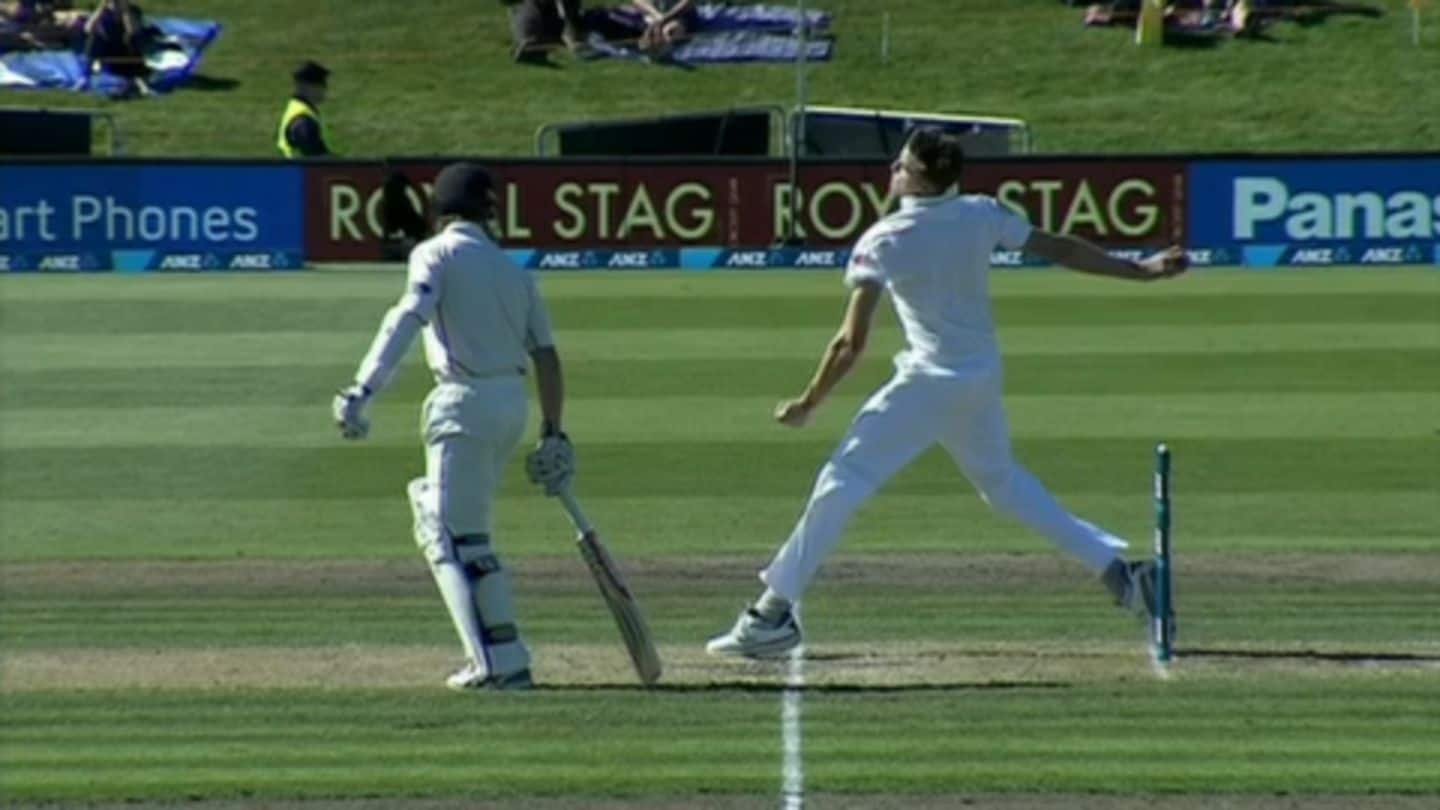
ICC to trial TV umpires calling front-foot no-balls
What's the story
There have been a number of instances in cricket where the on-field umpires have failed to come up with a proper call on the front-foot no-balls. In order to curtail such errors in the future, the International Cricket Council (ICC) is working on the idea to allow TV umpires to make the call for the same. Here are further details.
Six-month trial
ICC to start six-month trial involving limited-overs series
It is being reported that the ICC is set to start a six-month trial across a number of limited-overs series. During this trial, the right for calling a front-foot no-ball would solely lie with the TV umpire, and not the on-field umpire. While the process was trialled before during the ODI series between England and Pakistan in 2016, it would be done afresh.
Technology
The same 2016 technology to be used
ICC GM Geoff Allardice has confirmed ESPNCricinfo that the technology used in 2016 would be used once again. The third-umpire would be given an image of the front-foot landing with a few seconds. "He would communicate to the on-field umpire that a no-ball has been delivered, so every delivery on the field would be played as a fair delivery until called otherwise," said Allardice.
Quote
TV umpire to take the call through an enhanced picture
"The footage is shown on a slight delay, it goes to super slo-mo as the foot approaches the point of landing, and then, it freezes. The routine works well, with the third umpire judging the no-ball off a picture that isn't always shown," added Allardice.
Implementation
Recommendation to implement across every limited-overs tie
Allardice further said that the recommendation is to implement it across every ODI and T20I series played in the next six months. However, he added that it would be a big exercise to monitor all the no-balls bowled across all these matches during this phase. "We just need to understand all the challenges before implementing this across all matches," continued Allardice.
TV coverage
Levels of television coverage might make implementation difficult for some
Allardice also explained that the levels of TV coverage are not the same in every nation, which would make the implementation difficult. He also asserted that while matches are held across 80 venues, there are also 104 members, who play non-televised T20I matches. "Thinking through all of the implications of introducing this is the exercise for us over the next six months," concluded Allardice.
Author's take
Timing could be an issue
As ICC prepares for this trial on a broader scale, the author feels that the timing of making the no-ball call could be a crucial factor, as taking too long to decide could irk the players. Moreover, the author also feels that working on a technology similar to football's goal-line technology could be fruitful for the no-ball issue in the future.